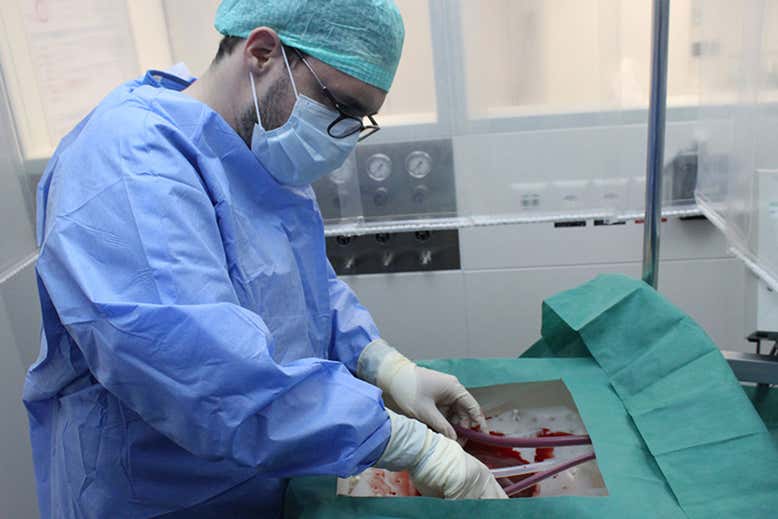Donated human livers can be kept alive for seven days in a new machine. The device also appears to improve the quality of the livers, as researchers say authors of the study, which they hope will allow more people to get transplants.
As is easy to imagine, human livers are in great demand. An adult who in Italy needs the donation of a transplant liver must wait an average of one and a half years.
Part of the problem is the short duration of the liver outside the body. Standard protocols can keep organs healthy for about 12 hours, though last September a team cooled the livers to -4 ° C to keep them alive for a day and a half.
Pierre-Alain Clavien from the University of Zurich in Switzerland and his colleagues have gone a step further, using a machine to keep human livers alive for seven days. The organs not only survive, but seem to become healthier, with a drop in the levels of compounds usually present in conjunction with injury and inflammation.
How the machine that repairs the transplant liver works
The machine delivers oxygen and nutrients to the livers and maintains a pressure similar to that inside the body. It also eliminates cellular waste products such as carbon dioxide.
Clavien and his colleagues have been developing the device over the past four years using pig livers for testing. In the latest experiment, the team used 10 human livers that were too damaged to be transplanted. Six of these livers survived in the device.

And they seemed to be working, says the team. The cells continued to perform basic functions such as maintaining basic energy metabolism and producing proteins.
Over the course of the week the organs shrank. At the end of seven days, the six "surviving" livers were about a quarter of their original size, but this simply appears to be a sign of reduced swelling.
“The team must be praised for the technical result”, he claims Simon Afford from the University of Birmingham, UK. But according to the scholar, researchers have yet to demonstrate that the machine will improve transplants. Most surgeons prefer to remove and implant donated livers within a few hours anyway.
References: Nature Biotechnology, DOI: 10.1038/s41587-019-0374-x


